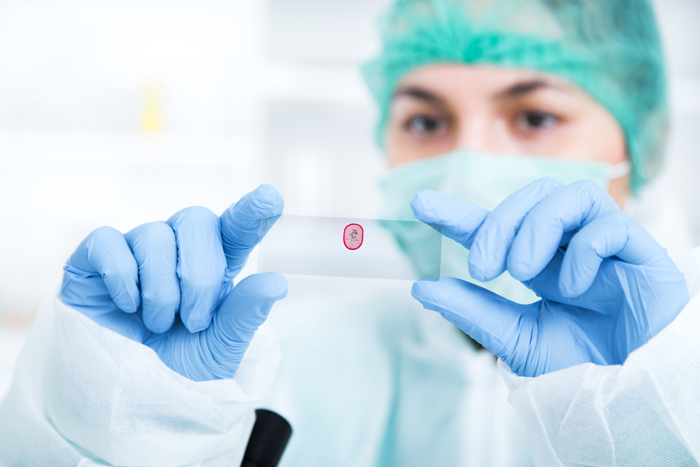Biopsy Treatment & Diagnostics in Karol Bagh, Delhi
Biopsy
Overview
Sometimes, your doctor may need a sample of your tissue or cells for diagnosing an illness or identifying cancer. Thus, when the tissues or cells are removed for analysis, it is known as a biopsy. Often, people are scared because of how it sounds. However, most biopsies are completely pain-free and low-risk. Let’s find out more about biopsies.
About Biopsy
A biopsy is a procedure in which a piece of tissue or a sample of cells from the body is removed to analyze it in a laboratory. If you feel certain signs and symptoms and your doctor identifies a certain area of concern, they may recommend a biopsy. It helps in determining whether you have cancer or some other condition that is causing those symptoms.
While it’s true that imaging tests like X-rays help detect masses or areas of abnormality, they cannot differentiate cancerous cells from noncancerous cells. In most cases of cancer, doctors can make a definitive diagnosis with the help of a biopsy to examine your cells closely.

Who Qualifies for a Biopsy?
A person who has been experiencing symptoms usually associated with cancer is qualified for a biopsy. Moreover, if the doctor locates an area of concern and needs to determine whether the area is cancerous, they may order a biopsy for such people.
Why is a Biopsy Conducted?
A biopsy is conducted to diagnose most cancers. It is the only sure way of doing it. Imaging tests such as CT scans and X-rays help in identifying areas of concern. However, they cannot differentiate between cancerous and noncancerous cells.
Generally, a biopsy is typically connected with the occurrence of cancer. However, please keep in mind that if your doctor recommends a biopsy, it does not mean that you will have cancer. Doctors often use it for testing whether cancer is causing abnormalities in your body or something else.
What are the Different Types of Biopsies?
There are different types of biopsies and almost all of them involve the use of a sharp tool for removing a small amount of tissue. Different types of biopsies include:
- Needle biopsy: The majority of the biopsies are needle biopsies where needles are used for accessing suspicious tissue.
- Ultrasound-guided biopsy: The doctor uses an ultrasound scanner to direct the needle into the lesion.
- Bone marrow biopsy: A large needle enters the pelvis bone for collecting bone marrow to detect blood diseases.
- Kidney biopsy: The needle gets injected through the skin on the back into your kidney.
- Prostate biopsy: Several needle biopsies are taken at once from your prostate gland.
- CT-guided biopsy: You will rest in a CT scanner and its’ images will help the doctor in determining the targeted tissue.
- Bone biopsy: If may be performed by an orthopedic surgeon or through the CT scan method to look for cancer of the bones.
- Liver biopsy: The needle gets injected into the liver via the skin on the belly to capture liver tissue.
- Surgical biopsy: A circular blade is used for getting a cylindrical sample of your skin tissue.
- Aspiration biopsy: A needle is used for withdrawing material out of a mass.
What are the Benefits of a Biopsy?
There are various benefits of a biopsy. They include:
- Diagnosing cancer
- Helping identify other conditions like infections, inflammatory, and autoimmune disorders
- Matching organ tissue before a transplant to watch out for signs of organ rejection
- Non-painful procedure
- Accurate results
- Brief recovery time
- Lower chances of infection
What are the Risks of a Biopsy?
Any medical procedure involving breaking the skin will carry the risk of infection or bleeding. But, as the incision in a biopsy is small, the risk is very low.
When to See a Doctor
Your doctor will recommend a biopsy when they find something suspicious during your physical exam or other tests. It helps them diagnose most types of cancer.
Request an appointment at Apollo Spectra Hospitals, Karol Bagh, New Delhi
Call 1860 500 2244 to book an appointment
Conclusion
Thus, a biopsy helps to make a diagnosis. It is mostly associated with cancer. However, it can also be used for diagnosing other conditions and identifying the progress of the disease.
Generally, a biopsy is done to help rule out cancer. Usually, biopsy results are provided within a short time. But, some samples require more time for evaluation. You can consult your doctor about how long you must wait and what you should expect.
In comparison to most other testing options, biopsies are accurate. They help in confirming a cancer diagnosis and identifying the type of cell tumor.
It depends on the type of biopsy you will have. In the case of a surgical biopsy, anesthesia is generally given. You need to consult your doctor to know more.
Initially, you can feel some sort of discomfort at the biopsy site. It mainly depends on your incision, usually, people take 1-2 days off to heal after a surgical biopsy.
Our Top Specialities
NOTICE BOARD
CONTACT US
CONTACT US
 Book Appointment
Book Appointment


.svg)
.svg)
.svg)
.svg)








